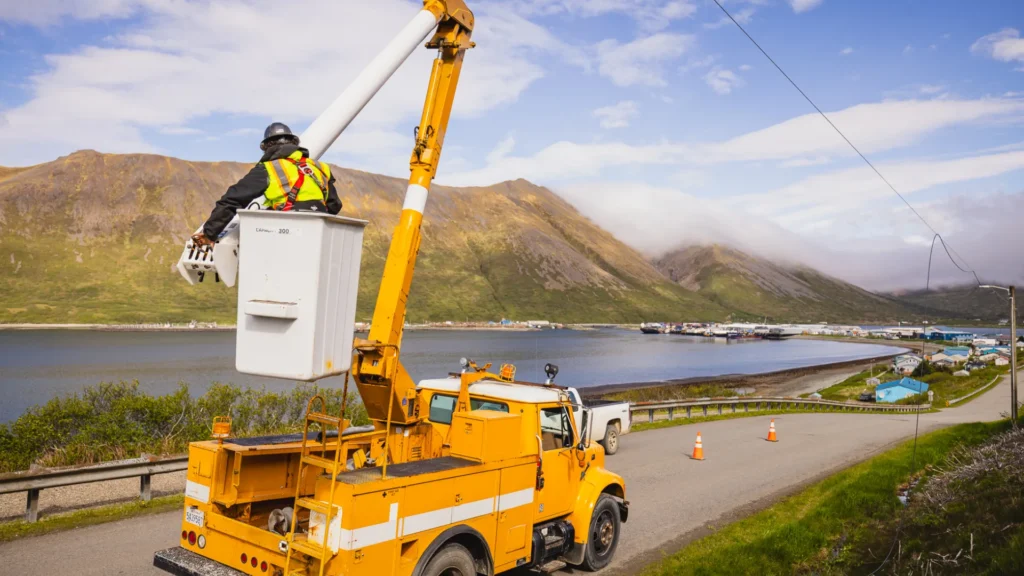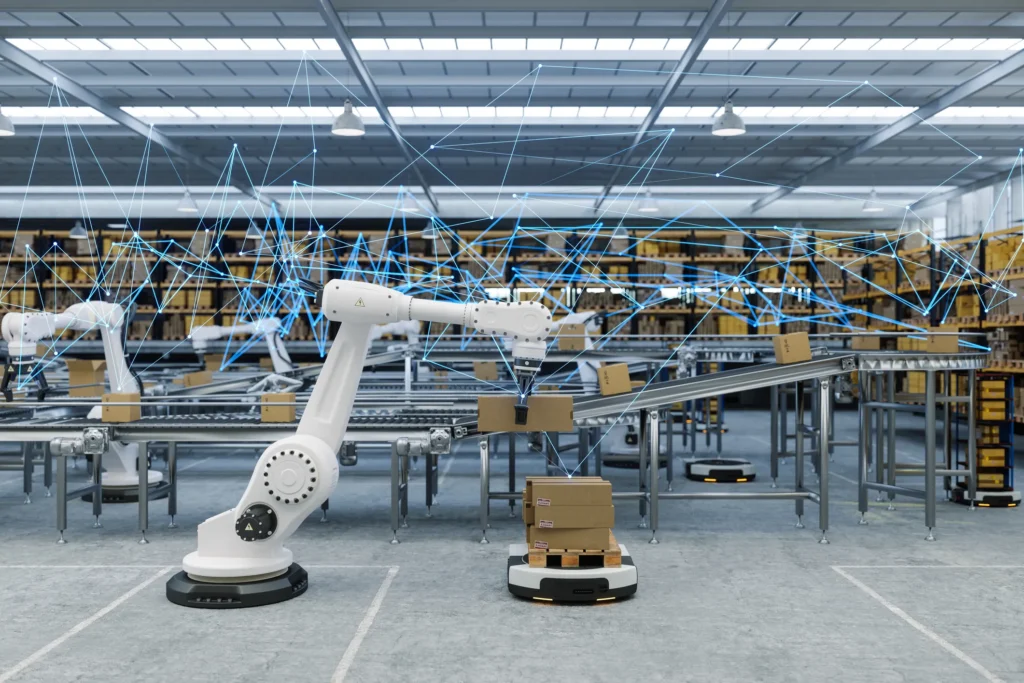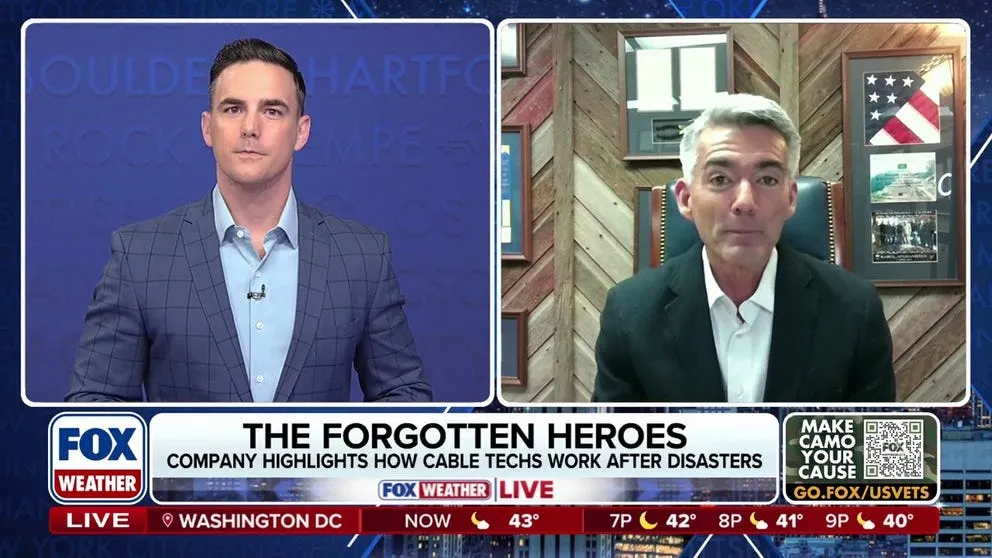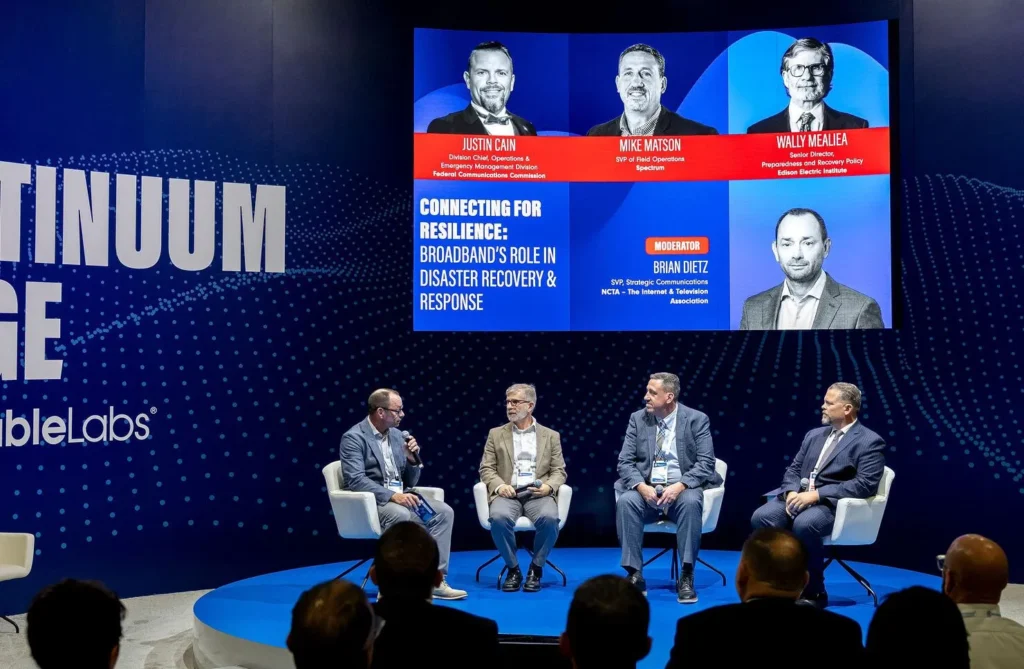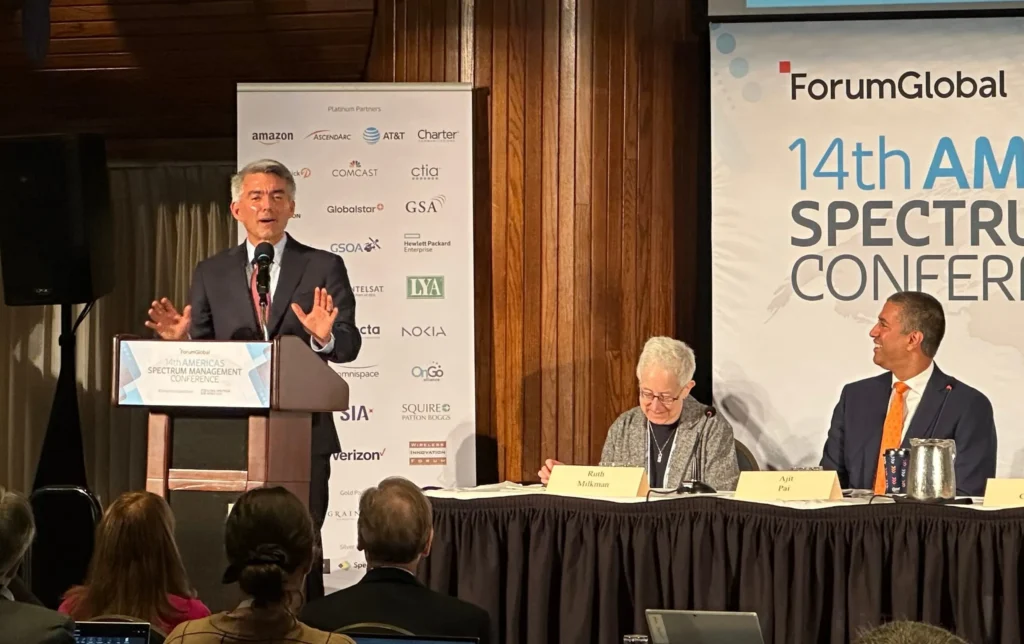As 2020 kicks off a new year and decade, will we see a new set of technology policy issues on the agenda? Or will the same issues continue to pop up from the past? We sat down with NCTA President & CEO Michael Powell to learn what policy issues he views as top of mind for the industry, how he sees the ever-changing streaming TV marketplace, and what is inspiring him as he looks at the issues of the day.
What are the top policy issues or challenges facing the industry this year?
I think 2020 is a year that is going to be driven by exponential changes in technology and business responses.
Network Infrastructure
For operators, who are heavily focused on dramatically expanding the intelligence and scope of their broadband networks, there’s a strong emphasis on infrastructure, rights of way, lowering costs for deployment, pole attachments and anything else that affects the economics necessary to continue to build out and reach more Americans. We are moving towards a 10G network, which is an extraordinary increase in power and capacity. So we will continue to highlight that as the future of American infrastructure and broadband and will try to educate regulators about its potential and its importance not only as a fixed asset, but as a critical input to making 5G wireless networks a reality.
Wireless
Some people don’t fully appreciate that we are a wireless industry both in the classic sense of offering mobile wireless handset service, as well as, heavy use of Wi-Fi, both in developing outdoor hotspots and indoor capabilities. We’re very, very focused on trying to ensure that there’s more spectrum for Wi-Fi and unlicensed uses. At the top of our spectrum wish list is 6Ghz, 5.9Ghz and the C-band proceeding, which also is of interest to programmers as they rely on a traditional C-band for program distribution.
Privacy
I think privacy is the issue that will be with us always as technology evolves. It is an important question for society that will be negotiated and renegotiated probably for the rest of our lifetimes. We see states taking actions, some good, some poorly designed, but where we have a yawning gap is federal privacy regulation and it has been very slow going. Whether you’re a corporation trying to understand the rules of the road for products and services, or a consumer trying to understand your rights, these things are not consistent from one state to the next. It’s important to have consistency in order to understand the impact on society as a whole. Are we going to allow data to be used by big platforms that are increasingly able to target Americans, predict their behavior and potentially manipulate their choices? Privacy is a monumental question.
Piracy
As programmers begin to put more focus and attention on direct-to-consumer streaming products, and more and more content is available in perfect digital reproductive form, the internet becomes more central and more dangerous. There’s a continuing intensity of theft and value destruction. Getting a handle on the leakage and the security of networks is essential. It’s something we’re going to be working on.
Rural Broadband
Rural broadband is at the top of every policymakers’ agenda, as it rightfully should be. It’s also at the top of our agenda as the country’s leading broadband provider. We’re committed to learning how to climb the final mountain to full deployment for all Americans and all parts of the country. We probably have the most experience and knowledge of what that takes and we’re trying to push our networks out as far as we can reasonably afford. We’re also interested in helping as a partner with government to figure out how to solve something that is extremely difficult and expensive. We want to be a voice for creative, efficient, well-focused public policy, just as we have been on mapping and universal service reform. We think we’ve been very effective in helping policymakers use their money more effectively in these programs.
There are now many TV streaming options, creating overwhelming choices for consumers. Do you have a view of how the marketplace is going to work out for consumers and the industry over the next two to five years or even beyond?
There’s the known, the unknown and the unknowable. What is known is that the debate is over inside corporate boardrooms about whether you’ve got to make a bold jump into this swimming pool. They all have more or less made the decision to do so. For a longtime this has been the province of one company – Netflix – with some important but other companies on the periphery. We are seeing now a doubling or tripling of these offerings. Disney+ was announced with great fanfare. HBOMax will be in the mix. Peacock was just announced and will be hitting the market soon. AppleTV+ is an incredibly well-heeled company with a huge balance sheet and lots of talent. Not to mention what’s going on with Hulu, what’s going on with Amazon Prime and the ones that don’t get the major press attention that still can be in the mix. Everything from Pluto TV, to initiatives being creatively worked on by all kinds of talented leaders out there. They’re all vying for a place in your home. But these content companies are not accustomed to having a direct, paying relationship with the consumer. They are now doing their own marketing, their own distribution, their own technical infrastructure, billing systems and the whole complexity of having to interact with a consumer in many ways the cable companies have done for them. These are new competencies they have to develop.
The consumer is going to have a whole lot of choices. I think the question is, “Does it become too dizzying? Does it become too fragmented and confusing for consumers?” As everybody pulls their content into their exclusive walled gardens, and if you want to watch a particular show, you can only watch it on a particular platform. That that can become a pain point for consumers. I’m not so sure every one of these streaming offerings is going to be able to win big. You can imagine the majority of consumers are going to have a couple of these and there are going to be a couple of really big winners and then it will be more fragmented. The question is who’s going to win the day? We don’t know because a lot of the big ones aren’t in the market yet, like HBOMax and Peacock. AppleTV+ is just getting started.
The other thing about it is consumer price sensitivity. Picking your own food at a buffet and weighing it at the end isn’t always a great value. I think when they start adding seven bucks here, and 13 bucks here, and 15 bucks there, it is suddenly the same price as my cable subscription. And, I have to hop around figuring out what platform my shows are on. That may or may not go smoothly. There is even a boomlet of cable Renaissance, meaning I’m just sticking with my cable subscription or I miss the simplicity of it all in one place. It’s one subscription and I get most of it.
I think at the end of 2020 we’ll know a lot better, but probably it’s at least a two-year exercise before we see how the dialogue with consumers actually goes. I think everybody’s done a model where they think they can make money, but it’s a big unknown when you’re taking your content off platforms where you knew you were going to make money, to ones that are less sure. It is not at all clear whether it will pay off for everyone. Time will tell.
What is inspiring you right now?
Thinking, Fast and Slow, Daniel Kahneman
Sapiens and Homo Deus, Yuval Noah Harari
Why We’re Polarized, Ezra Klein
I think it’s a really exciting time to truly understand human nature and the mind. Why do I say that? Because brain research has evolved at an astonishing rate and we know a lot more about that organ and the way we think and the way our consciousness works. It is so eye opening to have a better understanding of how you work and how much your brain doesn’t bother to tell you about. What you realize is there are all kinds of very predictable ways that you can be affected and manipulated.
There is a power asymmetry between users and tech companies. You’re putting yourself at a disadvantage if you don’t have a working knowledge of your own mind and how these companies work. However, we’ve learned that even when you’re aware of these things, most people still can’t resist doing them, but at least you’ve got the tools to know what’s up. I worry the average person just thinks they have more free choice and free will than we now know scientifically they do.
When I teach high school and college kids, if I could get them to do one thing, I would get them to understand this and start working on it when they’re 20 instead of when they’re 50. Their world will be so much happier and more powerful than discovering it decades later when you’ve already suffered and gotten angry too many times.
The Big Nine: How the Tech Titans and Their Thinking Machines Could Warp Humanity, Amy Webb
AI Super-Powers, Kai-Fu Lee
I just think we have to start being conversant in artificial intelligence. I don’t really subscribe to the dreamy version of it – a bunch of machines that act like human beings. The mundane uses of artificial intelligence are way more powerful and subtle. Most people when they hear this don’t really know what AI is, how it works and why the data is the gold, the oil of this machinery. Machines see patterns in data that your mind can’t see, that your eyes can’t view, that your ears can’t hear. There are certain things you can’t digest. The average human being cannot keep more than seven numbers in their head. A computer can keep millions of numbers in its short-term working memory and it can look at every little weak signal you have as a human being and see the patterns. Your mind may never become aware of these telltale signs, but a machine is going to. When you have asymmetric knowledge with a machine in this way, it will be able to predict your next action better than you can and it will have the knowledge to get you to do things it wants you to do. We may go from getting an ad for Starbucks because it knows you like coffee to a world where the machine nudges you to buy coffee at a given time and place.



